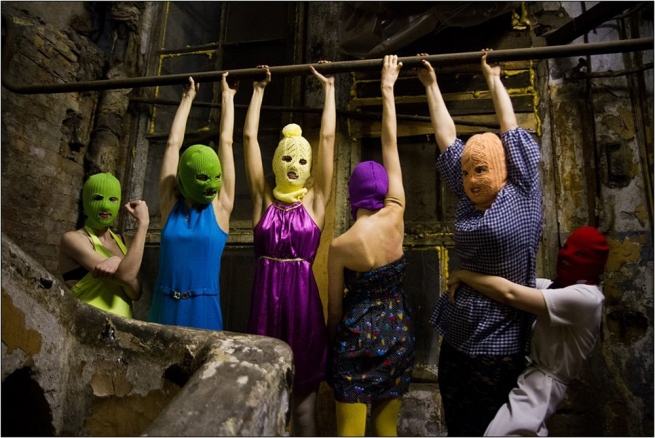
It’s October, and that means that Torontonians have just survived another annual, all-night, bacchanalian, contemporary-art binge called Nuit Blanche. Once a year, on the last Saturday in September, contemporary art in all its forms is brought free of charge to the Toronto public, from dusk to dawn. The festival had its beginnings in the ’80s in France but arrived in its present form in Toronto only in 2006. Since that first year, my reaction to the event has cycled through a range of emotions: from joy at having a city embrace contemporary art with wild-eyed abandon, to cynicism brought on by immoveable queues of drunkards clogging the lineups and events. I started to lose faith in Nuit Blanche when, in 2009, while standing in line to participate in Shawna Dempsey and Lorri Millan’s multimedia installation Wild Ride—a wry commentary on the recent global economic collapse, in the form of a thrill ride—it became clear that very few members of the audience appreciated the symbolism of, first, the location, Toronto’s financial district; second, the name of the ride, Avalanche; and finally, the fact that the carnies were dressed in business suits. The message of the piece was missed by the crowd, which was caught up by a fascination with the spectacle of a thrill ride.
While I still defend Nuit Blanche for its support of contemporary art and the palpable feeling it affords its participants of being a part of something larger, I often wonder about this spectacle component. Does the sheer number of spectacles at Nuit Blanche make it difficult to engage with multiple pieces in a meaningful way? Are the messages they hold not understood because so many of them are not worth understanding? Maybe these quantitative and qualitative arguments come together in spectacle: if there are enough messages available on a night like Nuit Blanche, maybe one of them will hit its target perfectly and that one message will be understood loudly and clearly.
Just such a direct hit, with just such an effect, was scored by a spectacle of a different kind that occurred simultaneously with Toronto’s Nuit Blanche. On October fourth, the Moscow-based, feminist punk-rock collective Pussy Riot, jailed for hooliganism, continued to subvert the Russian judicial system by firing their lawyer and thereby delaying their legal appeal. Founded in 2011, Pussy Riot is an anonymous collective that stages and records provocative performances that publicly criticize Russian political life. The collective is designed to be spectacular: the members dress in bright, beautiful dresses and wear coloured balaclavas, and their punk-rock antics draw a crowd. A March 2012 performance by five members of Pussy Riot was staged in the Cathedral of Christ the Saviour to protest the re-election of Vladimir Putin, and it resulted in three members being jailed. Staged after-hours, and shut down by security guards within minutes of starting, this performance was seen live by very few. Once the recorded event was posted on the Internet, millions heard and saw the punk prayer, which included a chorale-like chorus with lyrics begging the Virgin Mary to become a feminist, plus punk-rock verses that pleaded for the banishment of Putin, and was performed while the members of the collective alternately made the sign of the cross, each time genuflecting in front of the altar with punk-rock’s signature kicks. Spectacle.
Pussy Riot’s message was born of a post-glasnost Russia, where political corruption and Putin’s thug-like control of the Russian presidency make the openness and transparency promised by glasnost a vague memory. Pussy Riot’s method of clandestine and anonymous opposition is born from the systematic jailing and removal of anti-Putin voices. Pussy Riot’s staged and video-taped performances are spectacles that have brought worldwide attention to, and have put pressure on, the current Russian presidency. This is spectacle at it best: the message and the method have the world watching and listening. And when people notice and understand, they can then act.
So, bring on the spectacles. I will stand in the rain for hours, wade through drunkards, and wait in the cold for the chance to engage with something meaningful and spectacular.
Image: The Moscow-based, feminist punk-rock collective Pussy Riot in all their specatular glory. Image by: Denis Bochkarev.